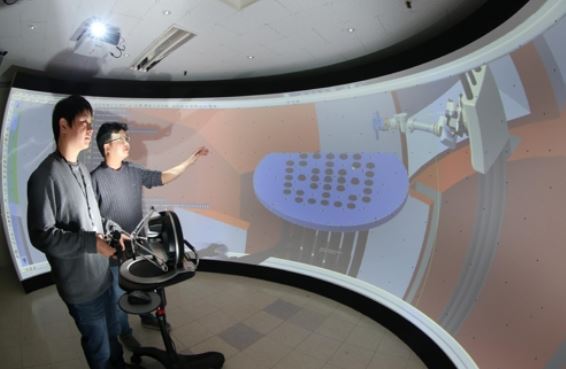KAERI inks deals with local companies to dismantle Kori-1 reactor
By YonhapPublished : Sept. 4, 2017 - 15:39
South Korea's state-run atomic energy institute said Monday it has signed contracts with several local firms for the development of the technology to dismantle the country's first decommissioned nuclear reactor.
The Moon Jae-in government announced the shutdown of the Kori-1 nuclear power plant in the southeastern port city of Busan in June amid concerns over possible power shortages and increases in electricity bills.
The chief executive, who took office in May, has pledged to close several aged nuclear reactors and coal-fired power plants so the country can shift to environmentally friendly sources of energy.

It is estimated to take upwards of 15 years to safely dismantle the Kori-1 plant, which began commercial operation in 1978. Its 30-year lifespan expired in 2007 but was extended by an additional 10 years, the Korea Atomic Energy Research Institute said.
Moon's election campaign also included pledges to scrap ongoing projects for the construction of six new nuclear power plants and to shut down other nuclear plants including the Wolsong No. 1 reactor, the lifespan of which has been extended to 2022 after its initial 30-year cycle ended in 2012.
South Korea has 24 nuclear reactors in operation generating about 30 percent of the country's total power supply.
KAERI said it will focus on the development of such decommissioning technologies as gauging the level of contamination at the reactor site and simulating the dismantlement, chemical decontamination and waste disposal processes.
KAERI said it has secured 27 technologies out of 38 needed for the complete dismantlement of a nuclear reactor.
"We've not yet secured 11 technologies," said Suh Beom-kyung, a KAERI official. "However, we are planning to acquire such expertise by 2021, as we've already reached the laboratory review stage for such processes." (Yonhap)



















![[Today’s K-pop] Treasure to publish magazine for debut anniversary](http://res.heraldm.com/phpwas/restmb_idxmake.php?idx=642&simg=/content/image/2024/07/26/20240726050551_0.jpg&u=)